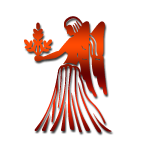Paid Services
Astrology - An Art of Reading Planets and Stars
Astrology or Vedic Astrology is a divine science. It is based upon constellations, zodiac signs and planetary positions. It predicts about the fate of a person, or in larger context, about any country or world. It is a noble science as it is in existence since the ancient times of vedic scholars and sages. It comprises of forecasting about the movements of stars, planets; fortunes and misfortunes of men or countries, nature's actions like earthquakes, volcanic eruptions, raining, etc. It is also known by the name of Jyotish. It is the Vedaanga, which means it is a part of Vedas and is called as Eyes of Veda. Furthermore, it is also called as Hora Shastra in Sanskrit language, means a science that treats the time.
कश्यपो नारदो गर्गो मरीचिर्मनुरंगिरा:।
लोमशः पौलिशश्चैव च्यवनो यवनो भृगुः
शौनकोsष्टादशाश्चैते ज्योतिःशास्त्रप्रवर्तकाः ।।
In India, Sages like Garga, Parashara, Jaimini, Varahamihira, Yavanas, Aryabhatta, Bhrigu, Brihaspati, Badrayana, Bhardwaja, Bhadalla, Kapila, Kashyapa, Satyacharya, Bhatottpala, Prithyushas and many more sages contributed in the development of Astrology.
A person who have insight of reading the fate of a person or a place based upon the planetary environment is called an Astrologer. Rishi Parashara gave some qualifications as to who could become a good astrologer. According to him, an astute astrologer must come from a noble family and have a good look and modest in temperament. They must be true, courageous, and bears a good mental and physical health. They should also be clear in their mind, should be witty, sincere and must be free from all vices. They should also be a God loving person, who can worship by having fasts and penance, and must be conversant with the sound knowledge of astrology, planets, stars and its formulas. In order to gives perfect predictions, their calculations must be correct.
Astrology is a great science and it can render very useful services towards the betterment of all humans on this divine earth. It shows the correct path to us and guide us towards a good life, and to make us understand the objectives of our life. It studies about the Zodiac and its various elements like planets, constellations, signs, etc. Zodiac belt is spreaded in total 360° and all the planets, Nakshatras and signs are situated in it. Since, we are living on Earth, and seeing the impact of all these celestial elements upon human life and this divine earth, the centre of Zodiac is assumed as Earth and Sun is assumed to be rotating around the Earth.
A science that tells about planets is known as Jyotish or Astrology, a guiding scripture. It is believed that the rise and development of astrology happened in India, because the background of Indian astrology is more than 8000 years old. A few of most important classics of astrology, written by Indian astrologer and saints are Brihat Parashar Hora Shastra by Mahrishi Parashar, Vrihad Samhita, Vrihad Jatak, Laghu Jatak by Varah Mihir, Siddhant Shiromani by Bhaskaracharya, Jatak Tilak by Shridhar, Jaimini Sutram by Sage Jaimini, Surya Siddhant, Laghu Parashari, Phaldeepika, Jatak Parijat, Maan Sagri, Bhaav Prakash, Bhaav Kutuhal, Bhavartha Ratnakar, Muhurt Chintamani, etc.
Planets
As per Vedic Astrology, there are seven major planets and two shadowee planets that affects human life on Earth. Therefore, our learned sages have given weightage to these Nine planets as the main essence of astrology. These planets are moving in Zodiac. These are the natural significator of some specified results in a birth chart. We can understand them as follows:
Sun
Planet Sun is the King of all nine planets. It is the main significator of Father & Father Figure in your life. Apart from that, it represents soul, good health, government, etc. It is a masculine planet as per Hindu Astrology. Sun rules over East Direction.
Moon
Planet Moon is the queen of all nine planets. It is the main significator of Mother in your life. It also represents water, cough, females, sea, different bodily fluids, etc. It is a feminine planet as per Hindu Astrology. Moon rules over North-West Direction.
Mars
Planet Mars is the commander of all nine planets. It is the main significator of brothers in your life. It represents energy, fire, leadership, blood, management, etc. It is a masculine planet as per Hindu Astrology. Mars rules over South Direction.
Mercury
Planet Mercury is the Prince among all nine planets. It is the main significator of sisters and aunts in your life. It also signifies skin, business, speech, wit, etc. It is a neuter planet as per Hindu Astrology. Mercury rules over North Direction.
Jupiter
Planet Jupiter is the minister in the court of all nine planets. It is the main significator of teacher, Guru or mentor in your life. It is known for expansion. It also signifies children, husband, wealth, wisdom and happiness, etc. It is a masculine planet as per Hindu Astrology. Jupiter rules over North-East Direction.
Venus
Planet Venus is the another minister in celestial court. It is the main significator of love and wife in your life. It provides a person with material comforts and enjoyments. It also signifies love, beauty, affection, comforts, marital bliss, etc. It is a feminine planet as per Hindu Astrology. Venus rules over South-East Direction.
Saturn
Planet Saturn is the servant in the court of planets. It is the main significator of service in your life, hence, it controls your Karmas, career and job. It also signifies, subordinates, labour, sorrow, hard work, detachment, service, etc. It is a masculine planet as per Hindu Astrology. Saturn rules over West Direction.
Rahu
Planet Rahu is also known as Dragon’s head or North Node. It is the army of celestial court. It is the main significator of politics, restlessness of mind and revolutionary thoughts. It gives instincts that sometimes motivates a person to achieve his goal, and sometimes offer bad results. It is a masculine planet as per Hindu Astrology. Rahu rules over South-West Direction.
Ketu
Planet Ketu is also known as Dragon’s Tail or South Node. It is the army of all nine planets. It is the main significator of detachment and salvation. It gives religious bent of mind, orthodox nature and if it is strong, it gives good will - power. It is a masculine planet as per Hindu Astrology.
Nakshatras
Nakshatras or Constellations are the bright stars that appears in the sky. They affects us in many ways. They are the part of celestial Zodiac, and in ancient times, they were the main point of predictions of Astrology. There are 27 Nakshatras in total. As total Zodiac is of 360°, it is divided in 27 Nakshatras. Thus, each Nakshatra is about 13°20’. This 13°20’ further divided into four parts as every Nakshatra has its four parts so each part is of 3°20’. Names of these constellations along with related planet and Zodiac signs are appended below:
| Planet Name | Nakshatra Name | Zodiac Sign | Expansion in Zodiac |
| Ketu | Ashwani | Aries | 0° - 13°20’ |
| Venus | Bharni | Aries | 13°20’ - 26°40’ |
| Sun | Krittika | Aries, Taurus | 26° 40’ - 40° |
| Moon | Rohini | Taurus | 40° - 53° 20’ |
| Mars | Mrigashira | Taurus, Gemini | 53° 20’ - 66° 40’ |
| Rahu | Ardra | Gemini | 66° 40’ - 80° |
| Jupiter | Punarvasu | Gemini, Cancer | 80° - 93° 20’ |
| Saturn | Pushya | Cancer | 93° 20’ - 106° 40’ |
| Mercury | Ashlesha | Cancer | 106° 40’ - 120° |
| Ketu | Magha | Leo | 120° - 133° 20’ |
| Venus | Purva Phalguni | Leo | 133° 20’ - 146° 40’ |
| Sun | Uttara Phalguni | Leo, Virgo | 146°40’ - 160° |
| Moon | Hast | Virgo | 160° - 173°20’ |
| Mars | Chitra | Virgo, Libra | 173°20’ - 186°40’ |
| Rahu | Swati | Libra | 186°40’ - 200° |
| Jupiter | Vishakha | Libra, Scorpio | 200° - 213°20’ |
| Saturn | Anuradha | Scorpio | 213°20’ - 226°40’ |
| Mercury | Jyeshtha | Scorpio | 226°40’ - 240° |
| Ketu | Mool | Sagittarius | 240° - 253°20’ |
| Venus | Purvashadha | Sagittarius | 253°20’ - 266°40’ |
| Sun | Uttarashadha | Sagittarius, Capricorn | 266°40’ - 280° |
| Moon | Shravan | Capricorn | 280° - 293°20’ |
| Mars | Dhanishta | Capricorn, Aquarius | 293°20’ - 306°40’ |
| Rahu | Shatabhisha | Aquarius | 306°40’ - 320° |
| Jupiter | Purva Bhadrapada | Aquarius, Pisces | 320° - 333°20’ |
| Saturn | Uttara Bhadrapada | Pisces | 333°20’ - 346°40’ |
| Mercury | Revathi | Pisces | 346°40’ - 360° |
Signs
Zodiac signs are 12 in total and they are ruled by a specific planet. Zodiac total is 360° divided by 12 (signs). So outcome is 30° which is the measurement of each Zodiac Sign. Furthermore, every sign contains 2.25 Nakshatras. Each sign have a specific design in the sky. Based upon which, we can predict the qualities of a person. In Vedic Astrology, Moon is the significator of mind and water. Our body is made up of almost 70% of water. Therefore, in Vedic Astrology, Moon and its placement has been given much importance. Major calculations are based upon the position of Moon in a birth chart. Therefore, this astrology is also called as Moon Sign Astrology, and are mentioned below:
Aries
This is the first sign of natural Zodiac. Ruling planet of Aries is Mars. It is a cardinal and Fire element sign. Ruling direction of this sign is East.
Taurus
This is the second sign of natural Zodiac. Ruling planet of Taurus is Venus. It is a fixed and Earth element sign. Ruling direction of this sign is South.
Gemini
This is the third sign of natural Zodiac. Ruling planet of Gemini is Mercury. It is a dual and air element sign. Ruling direction of this sign is West.
Cancer
This is the fourth sign of natural Zodiac. Ruling planet of Cancer is Moon. It is a cardinal and water element sign. Ruling direction of this sign is North.
Leo
This is the fifth sign of natural Zodiac. Ruling planet of Leo is Sun. It is a fixed and fire element sign. Ruling direction of this sign is East.
Virgo
This is the sixth sign of natural Zodiac. Ruling planet of Virgo is Mercury. It is a dual and earth element sign. Ruling direction of this sign is South.
Libra
This is the seventh sign of natural Zodiac. Ruling planet of Libra is Venus. It is a cardinal and air element sign. Ruling direction of this sign is West.
Scorpio
This is the eighth sign of natural Zodiac. Ruling planet of Scorpio is Mars. It is a fixed and water element sign. Ruling direction of this sign is North.
Sagittarius
This is the ninth sign of natural Zodiac. Ruling planet of Sagittarius is Jupiter. It is a dual and fire element sign. Ruling direction of this sign is East.
Capricorn
This is the tenth sign of natural Zodiac. Ruling planet of Capricorn is Saturn. It is a cardinal and earth element sign. Ruling direction of this sign is South.
Aquarius
This is the eleventh sign of natural Zodiac. Ruling planet of Aquarius is Saturn. It is a fixed and air element sign. Ruling direction of this sign is West.
Pisces
This is the twelfth sign of natural Zodiac. Ruling planet of Pisces is Jupiter. It is a dual and water element sign. Ruling direction of this sign is North.
Astrology is the study of planets, stars, cosmic objects and their impact on human lives. The position of these elements in the sky at the time of birth of a person, or on a specific time, have a great impact on shaping the destiny and personality of that person. It also tells about the different walks of their lives such as love, marriage, birth, death, health, troubles, financial gains or losses, career/job, etc.
Planetary Period (Dasha Period)
There is a specific period during which a planet affects the person with its full influence, and delivers good or bad results depending upon its position, strength and placement. This period is called Dasha period or as per Sage Parashara, it is called as Vimshottari Dasha System. This period starts at the time of birth of a person. In ancient times, it was given for 120 years of a person’s life, as normal age of a person was near about this in those days. For calculation of Dasha period, position of Moon is considered. According to Hindu Astrology, each planet has its defined Dasha period which is given below:
- Dasha period of Sun is 6 years.
- Dasha period of Moon is 10 years.
- Dasha period of Mars is 7 years.
- Dasha period of Mercury is 17 years.
- Dasha period of Jupiter is 16 years.
- Dasha period of Venus is 20 years.
- Dasha period of Saturn is 19 years.
- Dasha period of Rahu is 18 years.
- Dasha period of Ketu is 7 years.
Above mentioned periods are for Mahadasha (major period) durations. There are Antardasha, Pratyantar Dasha, Sookshma Dasha and Praan Dashas that goes in more depth for lesser periods and influence a person to the fullest.
Birth Chart
Horoscope or Kundli is a sketch of the stars and planetary positions at the time of birth of a person. This astrology chart helps an astrologer to read the past, present and future of a person. All the above-mentioned points are well considered in birth chart to analyse the situation of a person. With the help of Astrology, one can go for horoscope compatibility between the birth chart of two persons, also called matchmaking. Before marriage, they can match their birth chart with the chart of their desired soulmate, and can understand the compatibility between them.
Few Important parametres
With the help of Vedic Astrology, one would be able to know some special points that can help them tremendously to achieve pinnacle of success. They are mentioned below:
Choghadiya
We have 24 hours in a day but, if we have to start some auspicious work or go for a journey, we should know the auspicious time (Shubh Muhurat), so that we can perform our task during that span of time. We should know about the unfavorable period as well. As per Astrology, Choghadiya can help us to know about the good and bad times in a day. Choghadiya is a part of Panchang and it is divided into several parts viz. Udveg, Chal, Labh, Amrit, Kaal, Shubh, and Rog. Out of these, Amrit, Shubh, and Labh are very auspicious or blessed. You can certainly start any of your momentous activity during these time-periods of the day. Rest of the choghadiya are unfavorable.
Hora
Hora is an integral part of astrology as it indicates unit of time. It is also known as Shubh Horai in Tamil, which means auspicious or good time. In English, Hour is known as the unit of time that helps us measure time, similarly in Vedic Astrology, Hora plays the same role by measuring time period of various planets in a specific day. The word “Hora” has been derived from two words "Aho" and "Ratra" which means "Day" and "Night" respectively. As we already mentioned above that major planets are Seven i.e. Sun, Moon, Mars, Mercury, Jupiter, Venus and Saturn; hence, Hora is also of seven types. Each Hora indicates the time period of a specific planet like Sun Hora, Moon Hora, Mars Hora, Mercury Hora, Jupiter Hora, Venus Hora and Saturn Hora. This is for the daytime as well as for the night time. Duration of each Hora is calculated based on the time of Sunrise and Sunset of a specific place or city. Thus, everyday Hora periods are quite different and they also varies from city to city. Every Hora has its good or bad significance for a specific work.
Rahu Kaal
The most commonly known term in Astrology is Rahu Kaal. Though, Hora determines time period of all seven major planets but, Rahu Kaal is a specific period of Planet Rahu only. Hence, it is considered bad for any important work or new initiative. It is also believed that works started during Rahu Kaal does not give good or fruitful results and may lead to failure. Therefore, good and propitious works must not be initiated during this period. It is approximately of one and a half hour time. It differs from city to city as every city has a different sunrise time and Rahu Kaal is calculated based upon Sunrise time of a particular day and place. Rahu kaal is mostly considered by the time period of South Indian cities.
Sunrise & Sunset
Vedic Astrology helps us in many ways by telling us the planetary and stars positions, Eclipses, good or bad time for any work. Most of the calculations are based upon sunrise and sunset timings, hence Sunrise time and Sunset time plays a vital role in Vedic Astrology. The time when Sun rises in the East is known as Sunrise Time, and the exact time when Sun sets in the West is called the Sunset Time. As per Hindu Astrology, Sunrise and Sunset times are considered for various astrological important things such as Rahu Kaal, Choghadiya, Hora, good and bad Muhurats, etc. In Hinduism, a day starts from Sunrise and ends with Sunset. It is quite different from one city to another due to their longitudinal differences.
Transit Today
In astrology, Transit means the travel of a planet from one astrology sign to another. Every planet has a period of transit in which it can move from one sign and enter into next sign. The essence of astrology is based upon 9 planets, 27 Nakshatras and 12 Zodiac signs. Movement of these celestial objects impact human lives thus, transit has a great impact in Vedic Astrology. Transit Today helps us to know about the daily planentary positions.
Apart from the above, Saturn Sade Sati and Mangal Dosha are mostly considered for a person’s Birth Chart. You can also know your daily horoscope, weekly horoscope, monthly horoscope and yearly horoscope, and plan your major actions accordingly. Vedic Astrology has no limitations as it is a very deep science. It is a guiding tool for us. Astrologer is like your advisor as she/he can easily see the movement and placement of planets, stars, signs and other celestial objects and by analysing their impact on your life. An astrologer suggests you the correct path to follow. Ascendant is basically all about you and your body. If you know about your body well, then only you can find out the good or bad times in your life, the comforts that it would enjoy or problems that it would face. Thus, Ascendant is very much important.
Tenth House of horoscope is your Karma house and end of Karmas is the end of life cycle. Following are few lines that describes about the value of Karma:
कर्महीन नर पावत नाही।
कर्म प्रधान विश्व रचि राखा,
जो जस करहिं सो तस फल चाखा।
So, Karmas are also very much important in human life. Astrology guides you about your life’s real objective and ways to achieve it. Planets, during their different periods, impact your life by creating situations but, it is you who have the mind and power to take decisions. In every situation, the decisions you take, leads you to a new chapter in your life. Here, your Karma also starts. Sacred saints always emphasizes over doing good Karmas.
Thus, Astrology helps you to understand many ways of improvement in your life by analysing birth charts and other parameters. If you go through the directions being suggested by your planets, you can easily reach your destiny. You can also follow the right path which is actually correct for you, and enjoy good fruits of your good deeds.
We, at AstroCAMP, sincerely do hope that this article about Astrology would help you in various ways. By reading this article, you may have a better understanding of Astrology, its effects and importance in your life. We wish you a life full of calm and relax, and may you achieve success in all walks of life.
 Best quality gemstones with assurance of AstroCAMP.com More
Best quality gemstones with assurance of AstroCAMP.com More
 Take advantage of Yantra with assurance of AstroCAMP.com More
Take advantage of Yantra with assurance of AstroCAMP.com More
 Yantra to pacify planets and have a happy life .. get from AstroCAMP.com More
Yantra to pacify planets and have a happy life .. get from AstroCAMP.com More
 Best quality Rudraksh with assurance of AstroCAMP.com More
Best quality Rudraksh with assurance of AstroCAMP.com More
Get your personalised horoscope based on your sign.


































